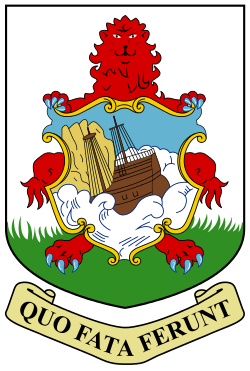 |
|---|
| Law |
| Administrative divisions |
The law of Bermuda is based on the common law legal system of England and Wales.
 |
|---|
| Law |
| Administrative divisions |
The law of Bermuda is based on the common law legal system of England and Wales.
The main categories of resident in Bermuda are:[ citation needed ]
The current Chief Justice of Bermuda is Narinder Hargun, who was appointed in 2018. [3] For previous Chief Justices, see Chief Justice of Bermuda.